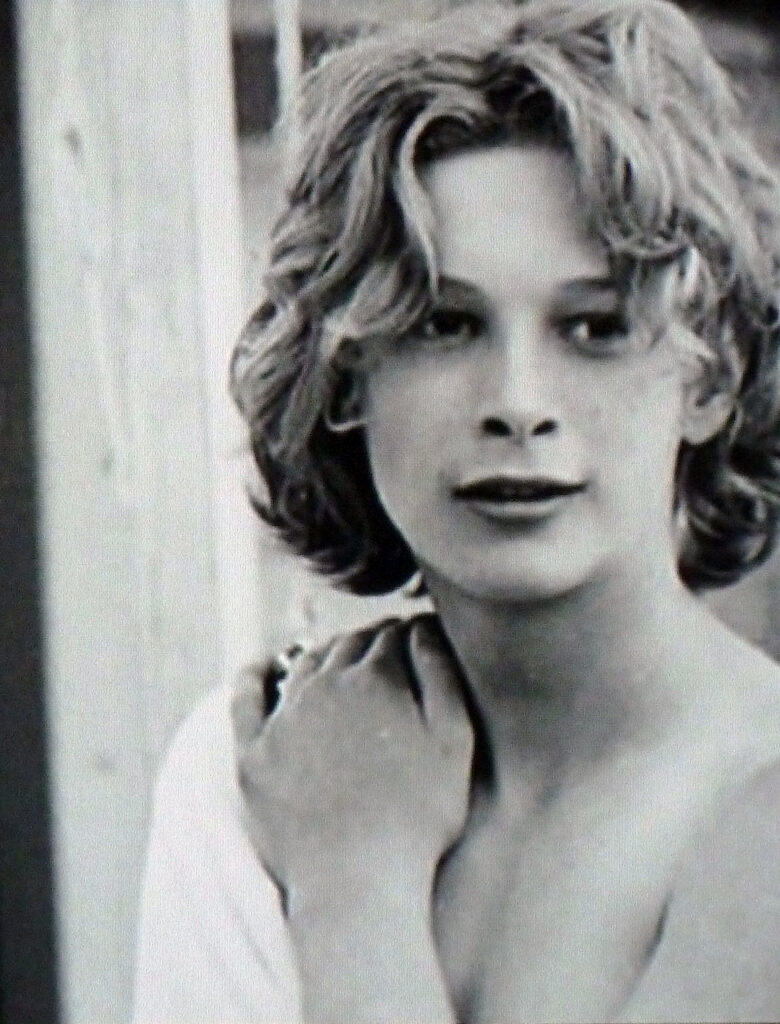
Björn Andrésen, dans Mort à Venise, credit Wikipedia
Death in Venice (2)
From Welsh National Opera, Thursday 7th March 2024 at the Millennium Centre, Cardiff. Reviewed by David Truslove.
The adaptation of Thomas Mann’s 1912 novella Death in Venice by Benjamin Britten and Myfanwy Piper is one of those near flawless reimaginings. Barely comprising any dialogue or exhibiting anything resembling a plot, Mann fashions a tale of discovery, obsession, and a plea for artistic renewal. Above all, its ‘contagion’ of desire points to questions about the creative stimulus behind any great artist, be it author or composer. In that sense Death in Venice is unsettling for its confessional and autobiographical basis. Restless for new experiences and distant scenes, the aging writer Gustav von Aschenbach travels to Venice soon becoming infatuated with the young boy Tadzio, whose family are holidaying at the Grand Hotel des Bains. As the city (itself a glorious symbol of decay) falls prey to infection and disease, an out-of-control Aschenbach is flooded with desire and fatally lingers, eventually succumbing to fate.
For this new production of Britten’s operatic farewell, Welsh National Opera has a gifted director in Olivia Fuchs. Her use of aerialists from the Cardiff-based ensemble NoFit State is an inspired and ingenious substitute for the ballet dancers who originally graced the stage for the 1973 premiere at Aldeburgh. Her imaginatively conceived staging and designs combine to produce something very special. Leading the virtuosic acrobatics is Antony César as Tadzio (a non- singing role), whose Polish family all perform gymnastic miracles on stage and in the air, a conceit neatly underlining the boy’s inaccessibility physically and emotionally. One creative touch is the heart-rending denouement in the sand wrestling scene between Tadzio and his friend Jaschiu; two bodies entwined and departing with a kiss viewed with despair by an unfulfilled and fast-fading Aschenbach.
Nicola Turner’s mainly monochrome designs are a perfect fit in their suggestive capacity for place and situation. Elegantly attired hotel guests in white neatly capture the Edwardian setting, while black outlines the Venetians. A bare stage is periodically furnished with a barber’s chair, a deck chair, a suitcase, each indicative of a specific scene or location, while video projections (courtesy of Sam Sharples) convey lapping water on the rear wall, at several points cleverly suggesting motion when crossing the lagoon from a stationary Gondolier standing behind Aschenbach. The whole is magnificently lit by Robbie Butler, whereby shifts of movement and mood are cannily accentuated.
Marc le Brocq is commanding as the urbane Aschenbach, a role originally written for Peter Pears. By the end of Act One when he whispers to himself ‘I love you’, one can sense the inner torment as he wrestles with his self-knowledge, now recognising the strength of his inclinations for the beautiful vision that is Tadzio whose face inhabits a ‘pure and godlike serenity’. Brocq’s ringing tenor cuts effortlessly through Britten’s secco recitatives, the awkward 12 note chromaticisms no obstacle to his delivery. It’s a role he inhabits with great distinction, traversing a curve from buttoned up suavity to emotional disintegration. Leading Aschenbach inevitably towards his fate is the baritone Roderick Williams, playing no fewer than seven characters, each individually conceived and all with a sinister undercurrent. If, at times, his voice needs greater projection his pirouetting fop, fawning hotel manager, flamboyant Leader of the Players, scarlet-suited Dionysius and camp, over solicitous hairdresser are all finely drawn characterisations, helped in no small measure by deft work with poppers and Velcro.
As the other-worldly Apollo, a gold-lamé clad Alexander Chance catches the eye and ear, his lustrous countertenor soaring over the Olympian games. It’s a scene often considered too long, but here rapt singing and fluid acrobatics sustain interest if not the emotional temperature. Minor roles, taken by members of the WNO chorus are all well-handled, notably Gareth Brynmore John as the Clerk and Peter Van Hulle as the hotel porter. In the pit, Leo Hussain directs the WNO orchestra with absolute assurance, conspicuously illuminating Britten’s vivid score with its numerous cameo roles and gamelan-style percussion.
In conclusion, this production is a superb team effort, its melding of multifarious talent and multi-layered discourse crafted with meticulous care. Welsh National Opera is to be congratulated.
Performances continue on tour until 11th May.
Editorial endnote. An earlier production of Death in Venice at Royal Opera was reviewed by Leslie Jones. See QR, ‘Silence is Golden’, November 24, 2019










